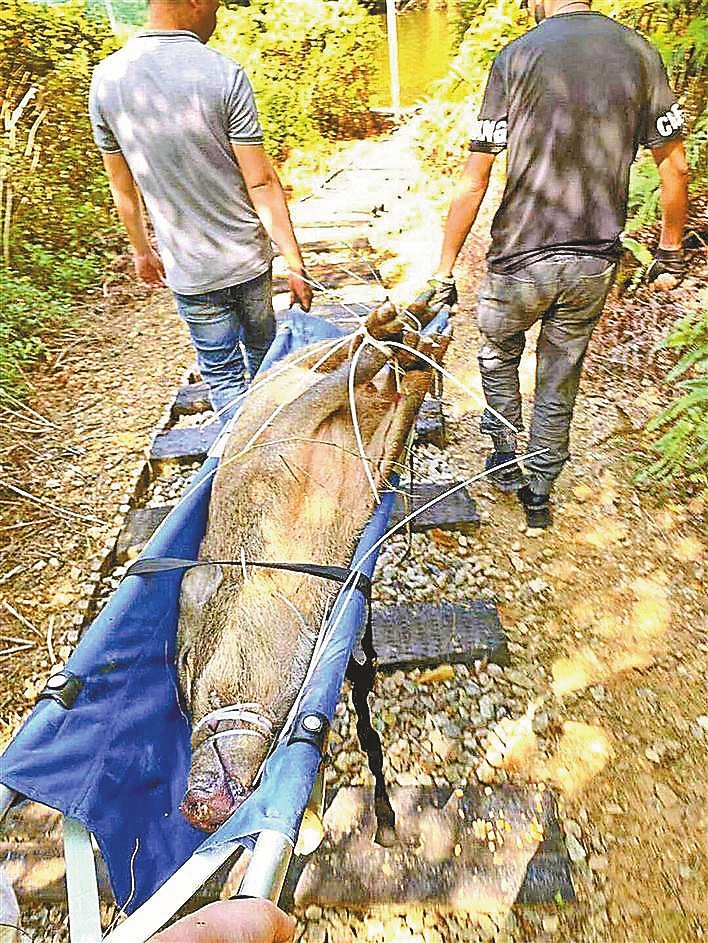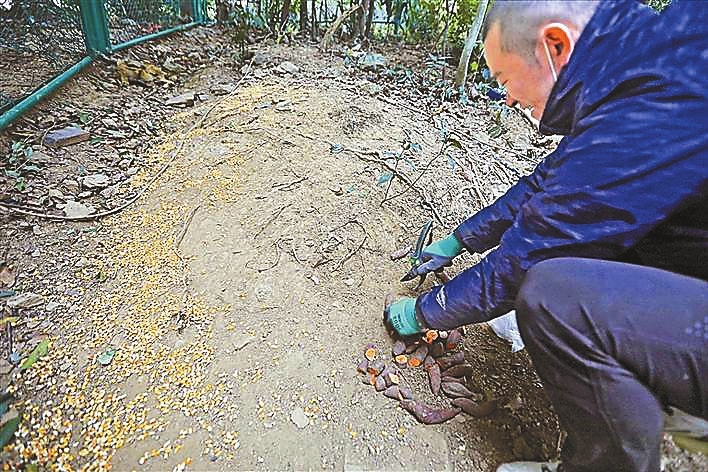

A GROUP of 16 wild boars were found to have destroyed the Cycas Revoluta Garden in Fairy Lake Botanical Garden in Luohu District in recent months. Three of them were captured by professional wildlife protectors and were later set free in the wild, Shenzhen Evening News reported yesterday. The administration staff of Fairy Lake Botanical Garden were worried as the wild boars have appeared frequently in Cycas Revoluta Garden since October last year. Cycas revoluta, also known as iron trees, are valued as ornamental plants for their evergreen, smooth and bright leaves. The national cycas revoluta conservation center was established in Fairy Lake Botanical Garden in 2002, with more than 240 species of plants in the family of Cycadaceae. The number of these species of plants in the park ranks second in the world. The oldest here is over 1,000 years old. So the Cycas Revoluta Garden has been a “have-to-go” attraction in the park. The iron trees welcome their blossom season every October, attracting great numbers of tourists during the period. However, park staff found the trails left by the wild pigs in a pool at the foot of the mountain in the north side of Cycas Revoluta Garden. And the signs indicated that there is a group of animals, not just one or two. The “flowers” of iron trees are actually their seeds which are natural gourmet food for wild boars. Unsurprisingly, staff found traces of wild boars eating the seeds. Fairy Lake Botanical Garden then sought help from the Shenzhen Wildlife Conservation Center. Chen Jiutong and Zhang Wenhui, both senior wildlife protection volunteers from the center, were assigned to handle the wild boars. “Look, here they come,” Chen hailed his partner Zhang to watch the videos on his phone, showing four wild boars, one big and three small ones, consuming food on a mountain slope. This is the CCTV footage from the mountainside of the northwest side of Cycas Revoluta Garden where Chen and Zhang set the monitors to observe the wild boars. The wild boars that appear in Shenzhen are one of the Eurasia species, living in the dense forests. They are such gluttons that they will eat anything edible such as nuts, leaves and grass. Their reproductive rate and the survival rate of their offspring are both high. Chen and Zhang placed infrared cameras and set out food on the paths that the animals will pass. Through the videos, the two handlers discovered that the wild boars would come down from the mountain and appear in the monitoring area at around 10 p.m. at night, and then leave at 2 or 3 a.m. the following day. “After a two-month observation, we found two species of wild boars numbering at 16,” Chen said. The food they put in the monitoring area serves as bait, aiming to cultivate their habits to have food at a designated time and location. Three wild pigs were caught by traps: one on Nov. 1, another in early December and one on Jan. 2 this year. “The captured wild pigs were fitted with trackers and then freed in the wild on Dapeng Peninsula. These will be important data sources for the survey of wild boars in Shenzhen,” Chen said. (Chen Siqi) | 
